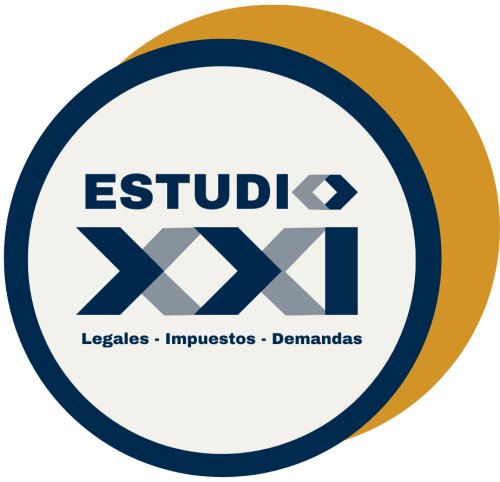Best Private Equity Lawyers in Paraguay
Share your needs with us, get contacted by law firms.
Free. Takes 2 min.
Or refine your search by selecting a city:
List of the best lawyers in Paraguay
About Private Equity Law in Paraguay
Private equity is a segment of the financial sector that involves investing in private companies or taking public companies private to improve their value before reselling them for profit. In Paraguay, private equity is gaining traction as both local and international investors recognize the country’s economic growth and business potential. Although still emerging, Paraguay’s regulatory framework for private equity is becoming more robust, making it a viable and attractive destination for private investments in sectors like agribusiness, energy, manufacturing, real estate, and startups.
Private equity transactions in Paraguay typically involve the establishment of investment funds or direct investments in companies through various partnership and shareholder arrangements. Proper legal structuring is crucial to ensure compliance with local laws and to protect investor interests.
Why You May Need a Lawyer
Navigating private equity in Paraguay requires specialized legal expertise. Here are common situations where legal assistance is essential:
- Forming or structuring private equity funds
- Drafting and negotiating investment agreements or shareholder agreements
- Conducting due diligence on target companies or assets
- Complying with Paraguayan securities, tax, and corporate laws
- Handling regulatory filings and approvals with local authorities
- Managing cross-border transactions and foreign investment limitations
- Resolving disputes between investors, fund managers, or business partners
- Advising on exit strategies such as sales, IPOs, or mergers and acquisitions
- Ensuring transparency and risk management throughout the investment lifecycle
Having a lawyer by your side helps mitigate risks, ensures the legality of your transactions, and maximizes the benefits of your investments in Paraguay’s growing private equity market.
Local Laws Overview
Paraguay’s private equity landscape is shaped by several local laws and regulations. Some of the most relevant legal areas include:
- Corporate Law: Private equity investments are commonly structured using various corporate forms, including Limited Liability Companies (Sociedades de Responsabilidad Limitada - SRL) and Corporations (Sociedades Anónimas - SA). Understanding incorporation rules, shareholder rights, and governance structures is crucial.
- Securities Regulation: The Paraguayan National Securities Commission (Comisión Nacional de Valores - CNV) supervises securities markets and regulates collective investment schemes. Some private equity funds may need CNV registration depending on their structure and public offerings.
- Foreign Investment: Paraguay offers a favorable environment for foreign investors, with few sectoral restrictions. However, anti-money laundering and anti-corruption regulations require transparency and proof of funds’ origin.
- Taxation: Investors must be aware of taxation on dividends, capital gains, transfer pricing, and double taxation treaties that may apply.
- Labor and Social Security: Investments involving mergers, acquisitions, or reorganizations may trigger labor obligations, requiring compliance with local employment laws.
- Competition and Antitrust Law: Significant transactions may necessitate pre-approval from Paraguay’s antitrust authorities to prevent market concentration.
Legal advice is essential to navigate these frameworks and ensure compliance with all applicable requirements.
Frequently Asked Questions
What is private equity, and how does it work in Paraguay?
Private equity refers to investing in companies that are not listed on the public stock exchange, usually to help them grow, restructure, or become more profitable. In Paraguay, these investments are typically structured through local companies or investment funds, often with active involvement from investors in management and oversight.
Are there restrictions on foreign private equity investors in Paraguay?
Paraguay generally welcomes foreign investment, and there are few restrictions on foreign ownership in most sectors. However, certain industries such as telecommunications or defense may have specific requirements, and all investors must comply with anti-money laundering laws.
How are private equity funds structured in Paraguay?
Private equity funds can be established as local investment funds regulated by the National Securities Commission or as other legal entities, such as corporations or limited liability companies. Legal structuring depends on the fund’s objectives, investor profiles, and regulatory considerations.
What role do lawyers play in private equity transactions?
Lawyers help structure investments, conduct due diligence, draft and negotiate contracts, ensure regulatory compliance, and represent client interests before local authorities or in potential disputes.
What is due diligence in the context of private equity?
Due diligence is the process of investigating a target company’s legal, financial, operational, and regulatory standing before investment. It helps uncover risks, obligations, and potential liabilities.
How are private equity investments taxed in Paraguay?
Taxation depends on the investment structure and the nature of returns. Common taxes include corporate income tax, taxes on dividends, and capital gains. Double tax treaties may provide relief in some cases.
Are there any regulatory approvals required for private equity investments?
Some transactions, especially those involving public offerings, certain regulated sectors, or large mergers, require prior approval or notification to local authorities such as the National Securities Commission or the antitrust authority.
Can minority investors protect their rights in Paraguayan private equity deals?
Yes. Several legal mechanisms, such as shareholder agreements, tag-along and drag-along rights, and special veto powers, can be negotiated to protect minority interests.
What happens if there is a dispute among private equity partners or with investee companies?
Disputes are usually resolved according to the terms of the investment or shareholder agreements. This can include litigation in Paraguayan courts or arbitration if the parties have agreed to it.
How can investments be exited or sold in Paraguay?
Common exit strategies include selling shares to third parties, initial public offerings (IPOs), buybacks by existing shareholders, or liquidation. Each method has specific legal and tax considerations, so professional advice is recommended.
Additional Resources
If you are seeking more information or support regarding private equity in Paraguay, consider the following resources:
- National Securities Commission (Comisión Nacional de Valores - CNV): The main regulator for investment funds, securities, and public offerings in Paraguay.
- Ministry of Finance (Ministerio de Hacienda): Responsible for fiscal policy, including investment incentives and tax guidance.
- Paraguayan Industrial Union (Unión Industrial Paraguaya - UIP): A business association that may provide networking opportunities and business climate insights.
- Local and international law firms: Engage a reputable legal firm experienced in corporate and private equity law in Paraguay for tailored advice.
- Financial and business chambers: Groups such as the Paraguayan-American Chamber of Commerce offer market intelligence and investment contacts.
Next Steps
If you are considering participating in private equity in Paraguay or facing a related legal issue, here are steps to guide your process:
- Identify your investment goals and the specific type of private equity activity you wish to pursue.
- Gather relevant documentation related to target companies, proposed structures, or funding sources.
- Consult with a qualified lawyer experienced in Paraguayan private equity law to understand your options and obligations.
- Conduct thorough due diligence before committing to any investment agreement.
- Request your lawyer to draft or review all contracts, partnership arrangements, and compliance documentation.
- Stay informed about local regulations and maintain clear records for future audits, tax filings, or exit opportunities.
- Maintain open communication with all partners and advisors throughout the investment lifecycle.
Legal guidance is vital to ensuring the success and security of your private equity ventures in Paraguay. Taking proactive steps and seeking professional advice can help you make informed decisions and protect your investments.
Lawzana helps you find the best lawyers and law firms in Paraguay through a curated and pre-screened list of qualified legal professionals. Our platform offers rankings and detailed profiles of attorneys and law firms, allowing you to compare based on practice areas, including Private Equity, experience, and client feedback.
Each profile includes a description of the firm's areas of practice, client reviews, team members and partners, year of establishment, spoken languages, office locations, contact information, social media presence, and any published articles or resources. Most firms on our platform speak English and are experienced in both local and international legal matters.
Get a quote from top-rated law firms in Paraguay — quickly, securely, and without unnecessary hassle.
Disclaimer:
The information provided on this page is for general informational purposes only and does not constitute legal advice. While we strive to ensure the accuracy and relevance of the content, legal information may change over time, and interpretations of the law can vary. You should always consult with a qualified legal professional for advice specific to your situation.
We disclaim all liability for actions taken or not taken based on the content of this page. If you believe any information is incorrect or outdated, please contact us, and we will review and update it where appropriate.
Browse private equity law firms by city in Paraguay
Refine your search by selecting a city.














